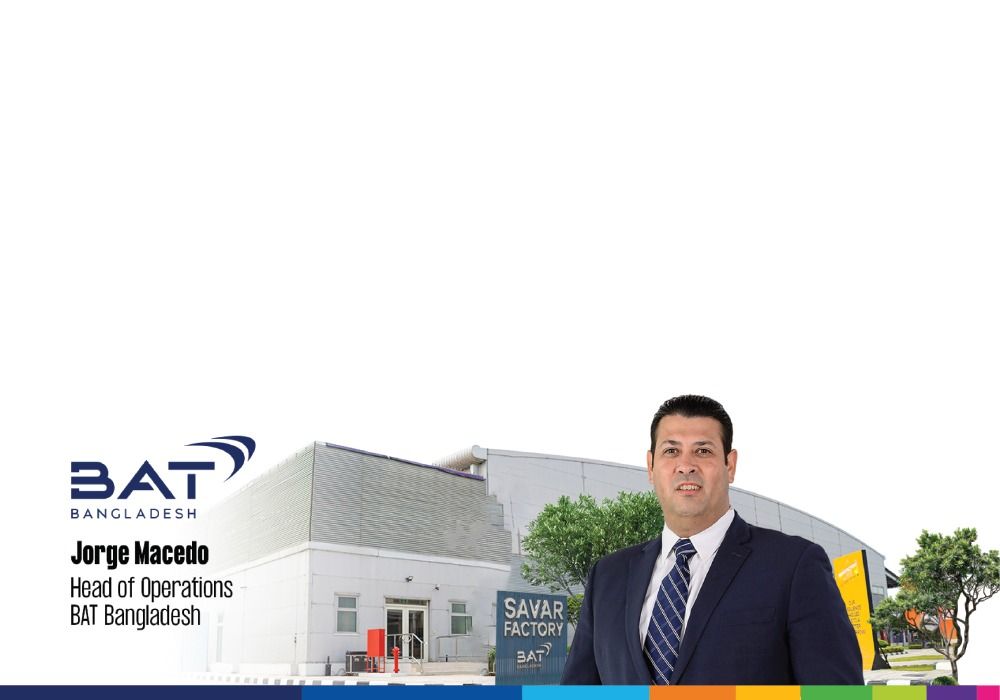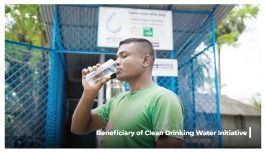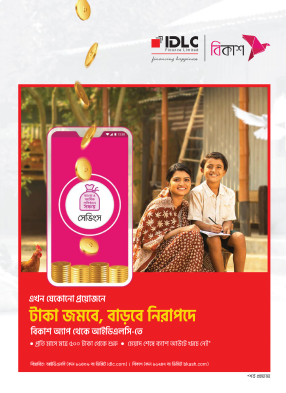- info@ficci.org.bd
- |
- +880248814801, +880248814802
- Contact Us
- |
- Become a Member
- |
- |
- |
- |
- |

As the world faces growing challenges from climate change, water scarcity, and damage to ecosystems, the private sector must go beyond its traditional economic role-it must become a driver of positive environmental and social change. In a climate-vulnerable country like Bangladesh, this responsibility is even more urgent. At BAT Bangladesh, we believe sustainability shouldn't be just about symbolic actions. It needs to be a core part of how we work, innovate, and grow. Our experience shows that running a sustainable business isn't just possible-it's key to long-term success.
Leading the Way in Water Stewardship
Water is a critical natural resource that underpins public health, food security, industrial productivity, and biodiversity. In Bangladesh, growing urbanization, agriculture, and climate-induced stresses are putting immense pressure on freshwater sources. As a major manufacturing entity, we have made it a priority to manage our water use responsibly and efficiently.

BAT Bangladesh is proud to be the first and only company in the country to achieve Alliance for Water Stewardship (AWS) Core Certification across all four of its key manufacturing sites-Dhaka, Savar, Kushtia, and Manikganj. This internationally recognized certification validates our commitment to sustainable water management that respects both people and ecosystems.
Our approach includes deploying advanced technologies such as Zero Water Discharge systems, Effluent and Sewage Treatment Plants (ETPs/STPs), and Reverse Osmosis (RO) systems to maximize reuse and minimize water withdrawal. These initiatives aim to reduce water withdrawal and we now recycle more than 40% of our operational water-delivering substantial savings while future-proofing our operations.
Transforming Communities Through Access to Clean Water
Our responsibility extends well beyond factory walls. BAT Bangladesh's flagship clean drinking water initiative is a long-term, community-focused programme designed to address one of the most persistent public health crises in Bangladesh-access to safe drinking water in arsenic- and salinity-affected regions.
This initiative currently operates 126 filtration plants across 25 districts, providing approximately 620,000 litres (based on plant capacity) of safe water daily to over 310,000 beneficiaries. These plants not only protect families from waterborne diseases but also reduce the burden on women and children who often travel long distances to fetch drinking water. The programme reflects our belief that business growth and social equity must go hand in hand.
 Driving Waste Circularity and Renewable Energy
Driving Waste Circularity and Renewable Energy
At BAT Bangladesh, sustainability also means rethinking waste and energy from a circular perspective. Our efforts in waste management have already resulted in 90%+ recycling rates at our major operational sites, and less than 1% of waste going to landfill.
Beneficiary of Clean Drinking Water Initiative
With 5.59 MW of installed solar capacity, we currently meet 10% of our energy needs from renewable sources, and we aim to raise this to 50% by 2030. BAT Bangladesh is also leveraging net metering and has purchased 12 MWh of International Renewable Energy Certificates to further offset its carbon emissions. The deployment of a Modular Industrial Online UPS system at our Savar factory has cut diesel usage by 95%, eliminating approximately 1,070 tonnes of CO2 emissions annually.
Partnering for a Greener Environment and Resilient Rural Economy
A sustainable business cannot thrive without a resilient supply chain. BAT Bangladesh works with over 50,000 farmers and is committed to enabling climate-smart agriculture and inclusive rural development. Programmes such as Alternate Furrow Irrigation (AFI), Green Manuring, and mushroom cultivation promote resource-efficient, low-carbon farming.
Launched in 1980, BAT Bangladesh's flagship afforestation initiative is one of the largest private sector-driven programmes of its kind in the country. Designed to promote wood-fuel self-sufficiency among farmers, it has also supported ecological restoration, biodiversity, climate resilience, and rural livelihoods through practical, community-focused interventions. Over the past 45 years, the initiative has been recognized with multiple accolades, including the prestigious Prime Minister's Award on five occasions and the Chief Advisor's Award.
A Scalable Blueprint for Sustainable Industry
The experience of BAT Bangladesh underscores a simple truth: sustainability is not a cost-it is a strategic investment. By aligning environmental stewardship with business objectives, we are strengthening our long-term competitiveness, building operational resilience, and creating shared value for society.
As we mark World Environment Day and reflect on our responsibilities to the planet and its people, we urge other businesses to adopt a more systemic approach to sustainability. Whether it's through better water governance, waste reduction, renewable energy, rural development, or transparent reporting-every step matters.
The private sector has a critical role to play in achieving Bangladesh's climate and development goals. The time to act is now-and together, we can secure a greener, fairer, and more resilient future.





